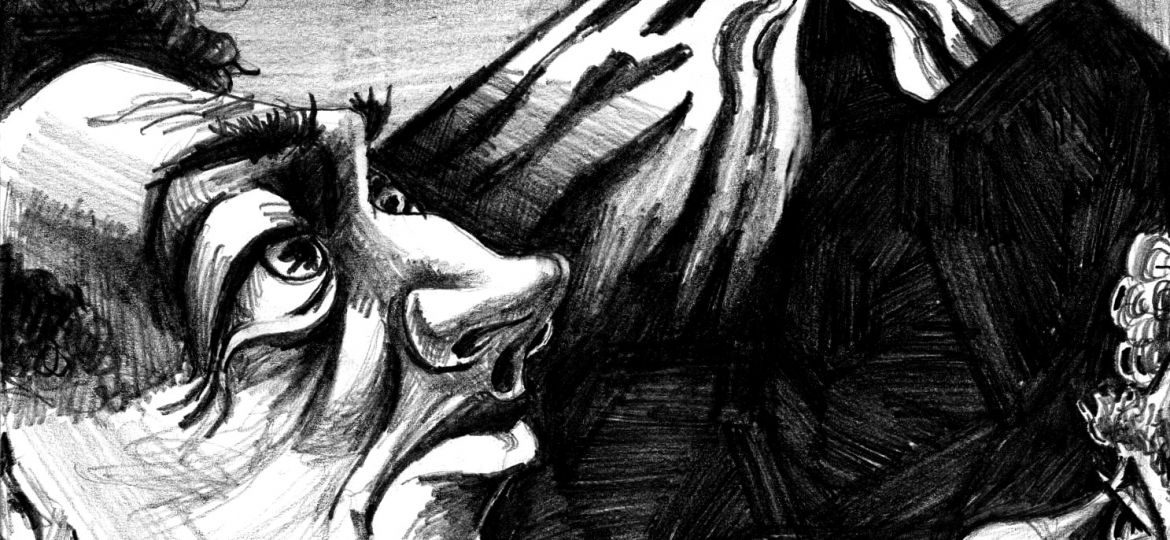
Three weeks ago, Associate Professor of Religion David Booth delivered a talk entitled “What Sort of Excellence?” to a crowd of fellow professors, students and administrators at the Opening Convocation for the 2019-2020 school year. In his stirring speech, Booth called on those in attendance to realize something about their reality that may be difficult to grasp — that we live in a truly absurd, paradoxical time.
“It turns out we — this room, this place — are called to live in a time of paradox and absurdity,” Booth said. “At this single moment, we should notice both.”
The paradox that Booth is referring to is the sullen realization that we face an existential crisis from the growing climate catastrophe, and that this catastrophe is due in large part to humanity’s endless desire for growth and success. Unchecked, constant human expansion has threatened our very existence.
This is an interesting realization. It leaves one wondering, ‘What now?’ How should we act if the very thing that drives us is the driver of our downfall? How can we strive for excellence if the kind of excellence we’re familiar with has only gotten us this far?
Here is where Booth responds with his idea of hope. It is hope for a better day that should drive us forward. A relentless, constant hope that, despite the obstacles we all face, we can somehow carry on and find beauty, love and sustainability again. I’m not saying these aren’t all here right now — I think they are. And I think they are stronger now than ever.
We must recognize their presence to cultivate hope and move forward.
Let us turn to the story of Sam and Frodo and their long walk to Mt. Doom that Booth highlighted in his address. Booth used the march of the two hobbits as an example of how we can face this despair, a despair that “looms and threatens to disable us,” and continue to live on. I think the two hobbits are an excellent example for how this despair, this long walk that we all must take together, can pull us closer together than ever before.
To better clarify this, let’s look at one of the most iconic moments from Sam and Frodo’s long journey. As they near their destination, Frodo is on the verge of collapse, of giving up right as the journey nears its end. Sam asks his friend, “Do you remember the Shire, Mr. Frodo? It’ll be spring soon.” Then, as Frodo expresses how they must finally destroy the ring, Sam says, “I can’t carry it for you, but I can carry you.” Sam picks up his fellow hobbit, they march up the rest of the way to Mt. Doom and complete their journey, destroying the ring and Sauron with it.
Sam and Frodo share a paradox similar to us humans. Their world is on the verge of collapse, they find themselves in a spot where there is no turning back and, for them, like us, the only path is forward. This small moment of hope between the two hobbits shows that it is possible to both understand the obstacle that faces us and act with courage to overcome it. We must remember the Shire, remember a time when the earth was better, remember the constant presence of love and beauty and fight to see that spring again. To see this spring, we must not act as individuals but rather as separate but equal partners, where we go about our unique tasks with passion, with courage and with enthusiasm.
“Unchecked, constant human expansion has threatened our very existence.”
– Jacob Maranda ’22
Although the collective obstacle we face is immense, it is not so for each individual. It is enough to live one’s life with energy and purpose to push back against this great despair. It is when we all act in this way that collective change can occur. I’d like to connect here to the global climate strikes of the past week. This energy, this collective purpose, is exactly the type of action that we need to change minds. Many individuals coming together created one of the largest global protests of all time.
But do not let this great obstacle distract you from your own purpose, your own striving for excellence. It is the great human gift that we can find hope in all situations. Find hope by participating in class discussions, in completing your next workout, in acing your next exam. The energy that we as individuals devote to these tasks will surely reverberate out and reflect in the world as we live it.
I will return to finish the paradoxical quote from earlier. “We should notice the panic of unprecedented threats to our human habitat,” Booth said. “And, we should notice the joy of renewing our common academic life. This year, let’s live that paradox to its fullest. Let’s rejoice.”
marand1@stolaf.edu
Jacob Maranda ’22 is from Rock Island, Ill. His major is undecided.

